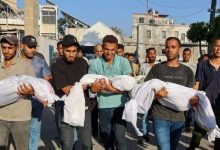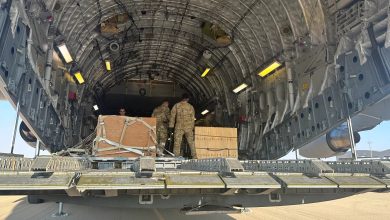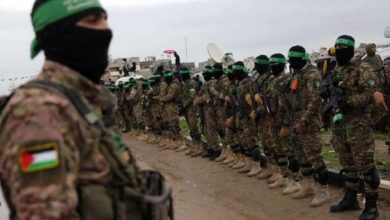Palestinian Families’ Struggle for Shelter Amidst Israeli Attacks in Gaza: Stories of Resilience and Survival
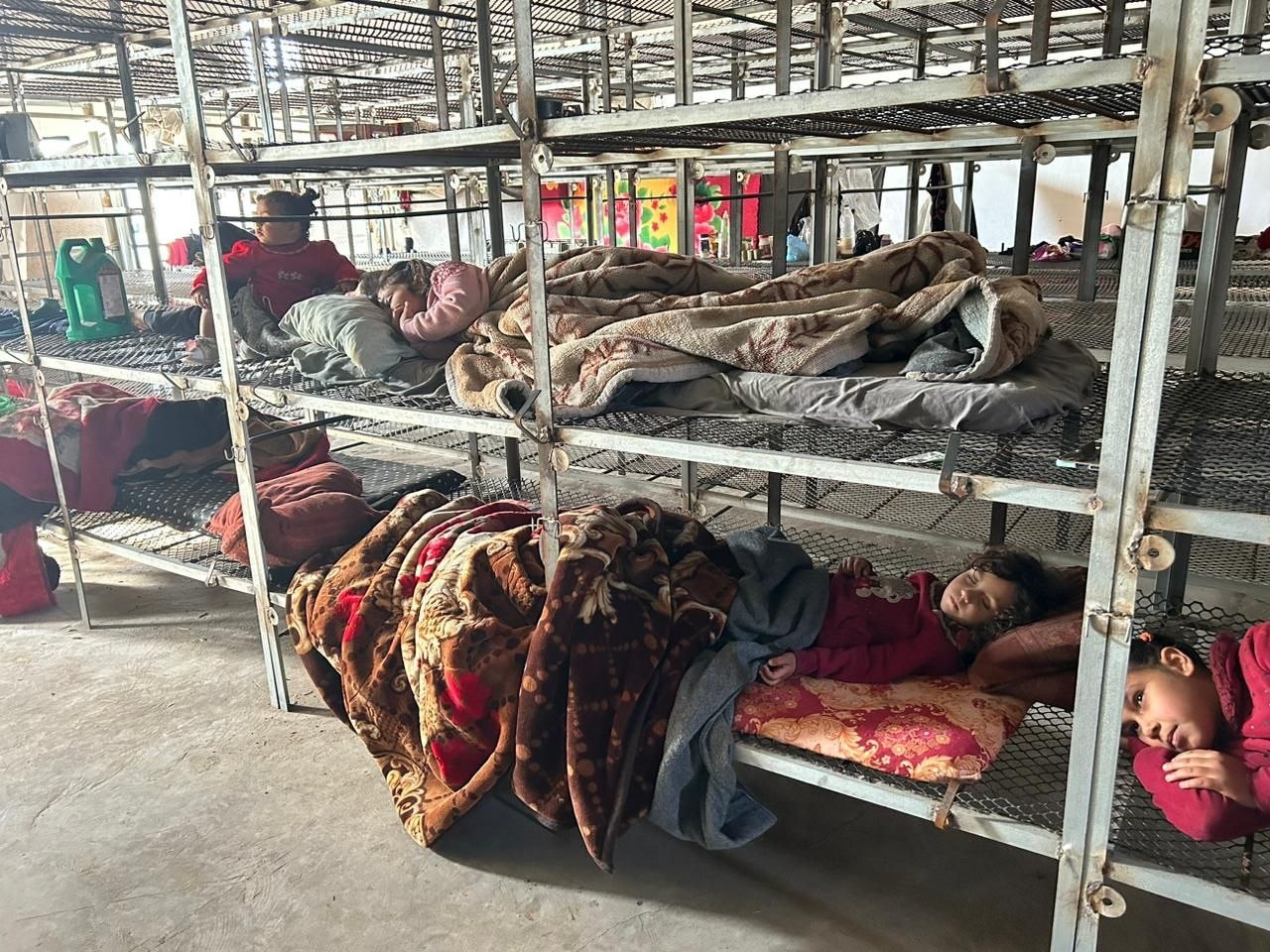
Watan-Seeking shelter in Gaza, whether in a simple tent on the street or in a crowded classroom, has become a luxury for hundreds of thousands of displaced Palestinians.The Israeli war has rendered Gaza almost uninhabitable in just four months.
The occupying army destroyed or damaged more than half of the buildings in Gaza, relentlessly shrinking safe or livable spaces throughout the besieged territory.
The war also forced Palestinians to flee their homes in the north and central areas of Gaza towards the south, resulting in the displacement of 85 percent of Gaza’s population of 2.3 million people.
Approximately 1.5 million people sought refuge in Rafah, an area covering only 64 square kilometers, struggling to find even enough space to pitch a tent due to severe overcrowding.
Israel has recently turned its sights on Rafah, the last available refuge for Palestinians, escalating its attacks on the city located in the southernmost part of Gaza, threatening an imminent ground invasion.
Under the threat of further widespread destruction and death, and due to the lack of options, many displaced families throughout Gaza have resorted to drastic measures to find shelter.
Middle East Eye spoke to one of the five families who sought refuge on a farm in Rafah, where they converted open chicken coops into beds for their children.
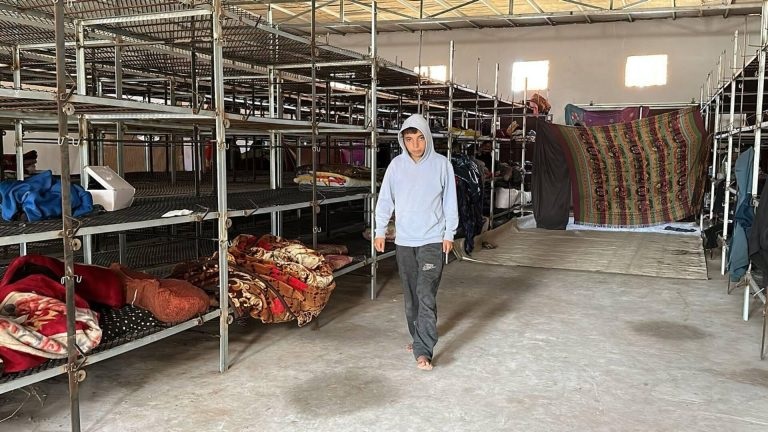
“Scared to sleep,” said Rafat Luqman, whose family of 32 includes newborns and young children. “We decided to come to this farm because we couldn’t find anywhere else to go.”
He added, “We came here thinking we could endure it for a few days, but this war has lasted much longer. I can’t believe my children are sleeping in coops where chickens sleep. It breaks my heart to see them like this… deprived of their childhood. But what else can I do?”
From inside the chicken coops, children can easily see the borders of Rafah under Egyptian control, with its high walls covered in barbed wire.
Luqman said, “My daughter took her teddy bear doll with her when we were evacuated the first time. She kept it with her all the time, but one day, it rained and flooded the farm. She was sleeping in the coop and her doll fell into the rainwater and got lost. She cried a lot about it the next day. Once again, her mother and I felt utterly helpless… we couldn’t even get her a new teddy bear.”
Luqman’s children say they have gotten used to their new reality now, finding it hard to remember that they once had a home and bedrooms.
Twelve-year-old Meis, Luqman’s daughter, said, “We’re still lucky that we didn’t die and that our parents are alive… but honestly, I still feel scared sleeping in the coops. It’s too cold and dark at night. I always hated bugs, but they’re everywhere here, and I can’t do anything about it.”
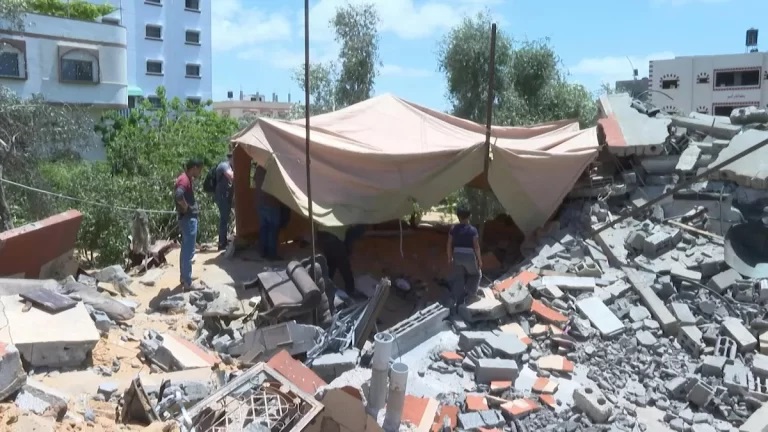
Living in the bombed-out homes
Meanwhile, displaced people in central Gaza also live in miserable conditions due to overcrowding in shelters – including schools, hospitals, and mosques – and a lack of basic services, including clean water, sanitation, and sewage systems.
Abu Ahmed Jabir, a father and grandfather, took shelter in a United Nations-run school and decided to return to his bombed-out home one afternoon while his family was having lunch.
“The situation in the schools is terrible. They’re overcrowded. No toilets, no food, no water, no privacy whatsoever. So, I decided to return with my family to my bombed-out home and live wherever was left standing.”
When Israel bombed his home, smoke filled the air, plunging them into darkness in the afternoon. Jabir said, “We thought we were done for.”
The elderly man and his children pulled his pregnant sister and her one-year-old daughter out from under the rubble with their bare hands. The family fled to a nearby school seeking shelter, where his daughter bled for hours before an ambulance could reach them.
Despite their painful experience, Jabir, who suffers from heart problems and diabetes, made the decision to return to their destroyed home in the middle of Gaza, feeling that all other alternatives lacked dignity.
“This is my home. How can I abandon it? I built it with my own hands, stone by stone. I look at it 20 times a day and suffer the fact that I can’t even rebuild or repair anything.”
He added, “I cry every night. I can’t even sleep anymore. If I doze off and wake up for any reason, I can’t fall asleep again. I’m living an extremely primitive life amid the rubble, but I prefer to do that rather than leave my home. Evacuating from one place to another is like a game of chess, and for what? What did I and my family do?”
He continued, “I’ve realized that nobody cares because we’re in Gaza… we’ve become videos that people can watch. Why is it so difficult to give us our basic rights granted by all international laws? I can’t understand the world.”
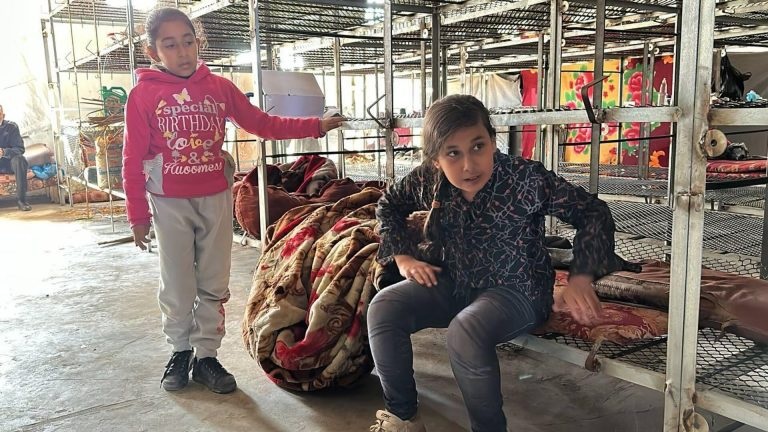
Children of Gaza sleeping in chicken coops
The Israeli army destroyed or damaged more than half of the buildings in Gaza, forcing residents to search for other places to try to live in The displacement of nearly two million people in Gaza brings back memories of the Nakba, or catastrophe, in 1948 when 750,000 Palestinians were forcibly displaced from their homes by Zionist militias to make way for the newly established state of Israel.
Today, Palestinians in Gaza live what their ancestors lived over 70 years ago, and the fear of never being able to return is the essence of their concern.
Jabir said, “If the house is destroyed, the land is still there, it’s mine. I prefer to die here than to live through another catastrophe like my family did before me.”
He added, “I’m not asking for help to leave or evacuate. I’m asking for an end to this war and help to rebuild my house and rebuild Gaza… all I really want is peace. I want to see my children get married, get jobs, and look forward to their future with their children.”

